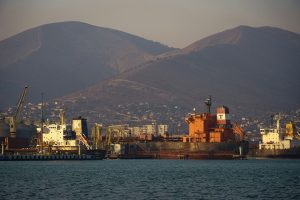When exporting goods to Russia, securing payments is a crucial aspect of the process. This article will outline a 3-phase Recovery System for Exported Goods to Russia, detailing the initial recovery process, legal action and attorney involvement, and recommendations for litigation. Understanding these phases is essential for companies engaged in international trade with Russia.
Key Takeaways
- Securing payments for exported goods to Russia requires a strategic and thorough recovery system.
- The initial recovery process involves sending letters to debtors, skip-tracing, and attempting to contact debtors through various channels.
- Legal action and attorney involvement become necessary if initial recovery attempts fail, and the process involves drafting letters, contacting debtors, and making recommendations for litigation.
- Recommendations for litigation include assessing the possibility of recovery, deciding whether to proceed with legal action, and understanding the associated costs.
- Rates for the recovery system are competitive and vary based on the number of claims submitted and the age and amount of the accounts.
Recovery System for Exported Goods to Russia
Phase One: Initial Recovery Process
In the first phase of our recovery system, we hit the ground running. Within 24 hours of initiating the process, we deploy a multi-channel approach to contact the debtor. This includes the dispatch of the first of four letters and a comprehensive skip-tracing to gather the most up-to-date financial and contact information.
Our collectors are relentless, making daily attempts to reach a resolution through phone calls, emails, text messages, and faxes. The goal is clear: to secure payment or reach a settlement that satisfies all parties involved.
Persistence is key. We maintain a high frequency of contact attempts during the first 30 to 60 days, ensuring that the debtor is aware of the seriousness of the situation.
If these efforts do not yield results, we’re prepared to escalate to Phase Two, involving legal action and attorney involvement. Our strategy adapts as needed, always focusing on recovering your funds efficiently and effectively.
Phase Two: Legal Action and Attorney Involvement
Once we escalate to legal action, our affiliated attorneys step in with full force. Their first move is to draft a demand letter, clearly stating the debt owed to you. This letter, on official law firm letterhead, carries significant weight.
Simultaneously, the attorney’s team begins persistent attempts to contact the debtor. Phone calls complement the demand letters, ensuring the debtor feels the pressure from all sides. If these efforts don’t yield results, we’re transparent about the challenges and guide you towards the next step.
We’re committed to clear communication. If the path to recovery becomes rocky, we’ll lay out the options, including the potential for litigation.
Should litigation be the recommended route, you’ll face a decision. Here’s a quick breakdown of potential costs:
- Court costs and filing fees: $600 – $700 (varies by jurisdiction)
Remember, these upfront costs pave the way for legal action to recover your funds. If litigation doesn’t succeed, you owe us nothing further. It’s a no-win, no-fee assurance that aligns our interests with yours.
Phase Three: Recommendations and Litigation
At this juncture, we face a critical decision. If the likelihood of recovery is low, we advise closing the case, incurring no further costs. Conversely, should litigation seem viable, we must weigh the potential benefits against the upfront legal expenses, typically ranging from $600 to $700.
We stand by a transparent fee structure, ensuring you pay only for successful collections. Our rates are competitive, reflecting the age and amount of the claim, as well as the volume of cases submitted.
Here’s a quick glance at our fee schedule:
-
For 1-9 claims:
- Under 1 year: 30%
- Over 1 year: 40%
- Under $1000: 50%
- With attorney: 50%
-
For 10+ claims:
- Under 1 year: 27%
- Over 1 year: 35%
- Under $1000: 40%
- With attorney: 50%
Remember, if litigation does not result in recovery, you owe us nothing. It’s a partnership where we shoulder the risk together, ensuring our interests are aligned with your success.
Frequently Asked Questions
What is the Recovery System for Exported Goods to Russia?
The Recovery System for Exported Goods to Russia is a 3-phase process designed to help companies recover funds from debtors in Russia. It involves initial recovery processes, legal action, and attorney involvement, as well as recommendations and litigation.
What happens during Phase One of the Recovery System?
Phase One involves sending letters to the debtor, skip-tracing and investigating to obtain financial and contact information, and attempting to contact the debtor for resolution. If all attempts fail, the case proceeds to Phase Two.
What is the role of attorneys in Phase Two of the Recovery System?
In Phase Two, the case is forwarded to affiliated attorneys within the debtor’s jurisdiction. Attorneys draft letters demanding payment, attempt to contact the debtor, and provide recommendations for the next steps if resolution is not reached.
What are the recommendations provided in Phase Three of the Recovery System?
Phase Three provides two recommendations: closure of the case if recovery is unlikely, with no obligation for payment, or proceeding with litigation. Legal action requires upfront legal costs, and the outcome determines any further financial obligations.
What are the rates for the Recovery System services?
The rates for the Recovery System services are competitive and tailored based on the number of claims submitted within the first week of placing the first account. Rates vary depending on the age and amount of the accounts, as well as whether they are placed with an attorney.
What are the potential costs of legal action in the Recovery System?
Legal action in the Recovery System may incur upfront legal costs such as court costs and filing fees, typically ranging from $600.00 to $700.00, depending on the debtor’s jurisdiction. If litigation fails, there are no further financial obligations.





